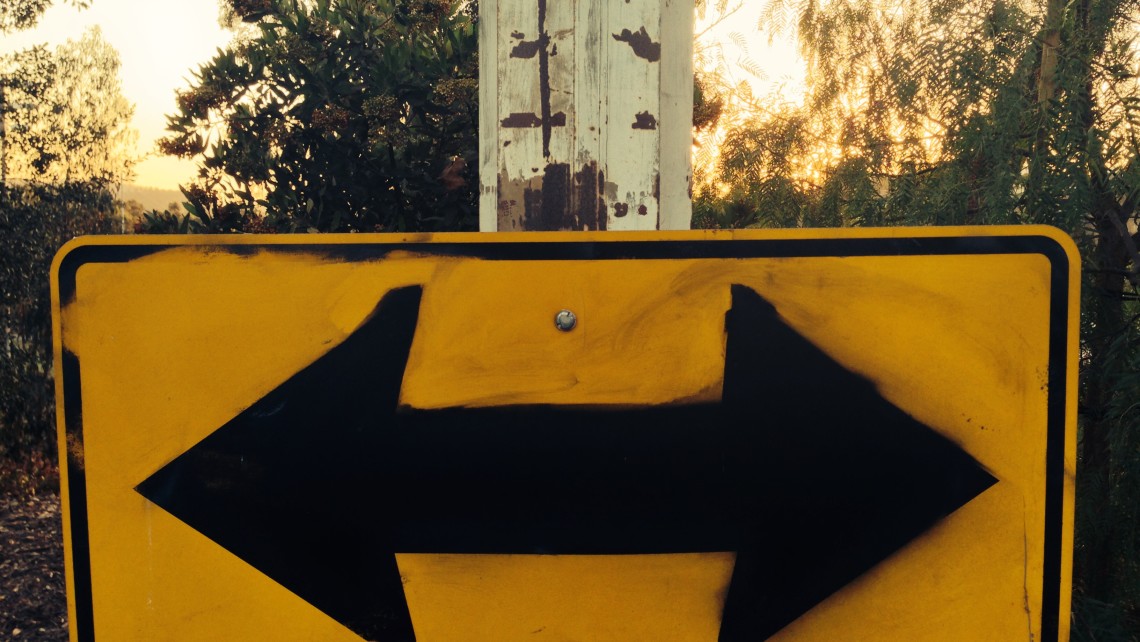Direction and purpose are the longings of our generation and as a people, we look for the ways to give significance to others and the world. For many seasons in our life, this purpose is clarified for us. When we are parents, our direction and purpose is driven by parenthood. When we are students, our direction and purpose is marked by learning and graduating. These are the seasons that make direction a lot easier.
However, most of us live in the grey. These are the areas where either our circumstances don’t help clarify our direction or our circumstance itself is a hindrance to us moving forward. Perhaps it is something not welcomed in our life that has now overshadowed our days.
A new generation is believing everything is possible and there are no restrictions. The openness to technological and informational power has only led to the confusion by having all the options instead of only one. Direction is then driven by self-awareness and personality rather than availability. And this often gets very cloudy if we believe we don’t truly have something to offer.
As this generation grows older, the difficulty has and will come from directions that felt so certain but has led them to a dead end, full of empty promises. Now they must choose.
I must also mention, there is nothing wrong with seeing the world as an endless possibility. There are more advancements and solutions for our world’s problems than every before.
For those of us still seeking a sense of direction and purpose, we may be doing a lot of self-reflection with trial and error. More than ever, direction and purpose are a personal endeavor. There is nothing wrong with longing for individual, personal purpose. We each have significance and something incredibly unique to offer. But without community, to whom are we offering it?
The search for direction begins with the question, “Who am I?” The answer to this question may not be a direction at all but an affirmation of the journey. Because we get so focused on the destination, we often forget about the journey.
As much as I have sought or questioned my own direction in life, more than anything, healthy community, spiritual mentors, and wise friends have helped the most to pick me up off the dirt and remind me of the way forward. Direction and purpose itself manifests in community.
This reveals several dynamics: we need to be a part of community who truly know us in order to clarify our purpose and direction; the community itself must be set on seeing, calling out, and empowering gifting in each other; direction and purpose is just as much a communal identity as individually.
Since this is not normally our experience, the void of both clarity and help with our direction creates overwhelming anxiety for us. Our response is to to search for the one particular path for the rest of our lives. Because of this, we experience a heightened pressure to figure out our direction and make sure we are right. Instead of a direction, we want the step-by-step map. We are afraid of missing our path.
But direction is more of a leaning than a path. If we look through history, those who have made a mark were not those set on doing something that will give them a name. But rather, they set themselves towards an ideal which embodied a certain character. It was by focusing themselves towards the ideal and being that character through life’s choices that led them to set their direction: the character to stand for something more. Sometimes when the path is not clear, and everything tells us to turn right or left, we should set ourselves on going forward.
I can’t think of a better organization that models helping people find direction and purpose in their life and also providing the community against isolation than People of the Second Chance. In Mike Foster’s new book, People of the Second Chance, he says, “Every day is a chance to find meaningful ways to put love back into the world. It’s not about all those pain-induced questions per se. It’s about living a life that matters.”
Mike goes on to quote Richard Rohr from Falling Upward, “When you get your ‘Who am I?’ question right, all the ‘What should I do?’ questions tend to take care of themselves.”
